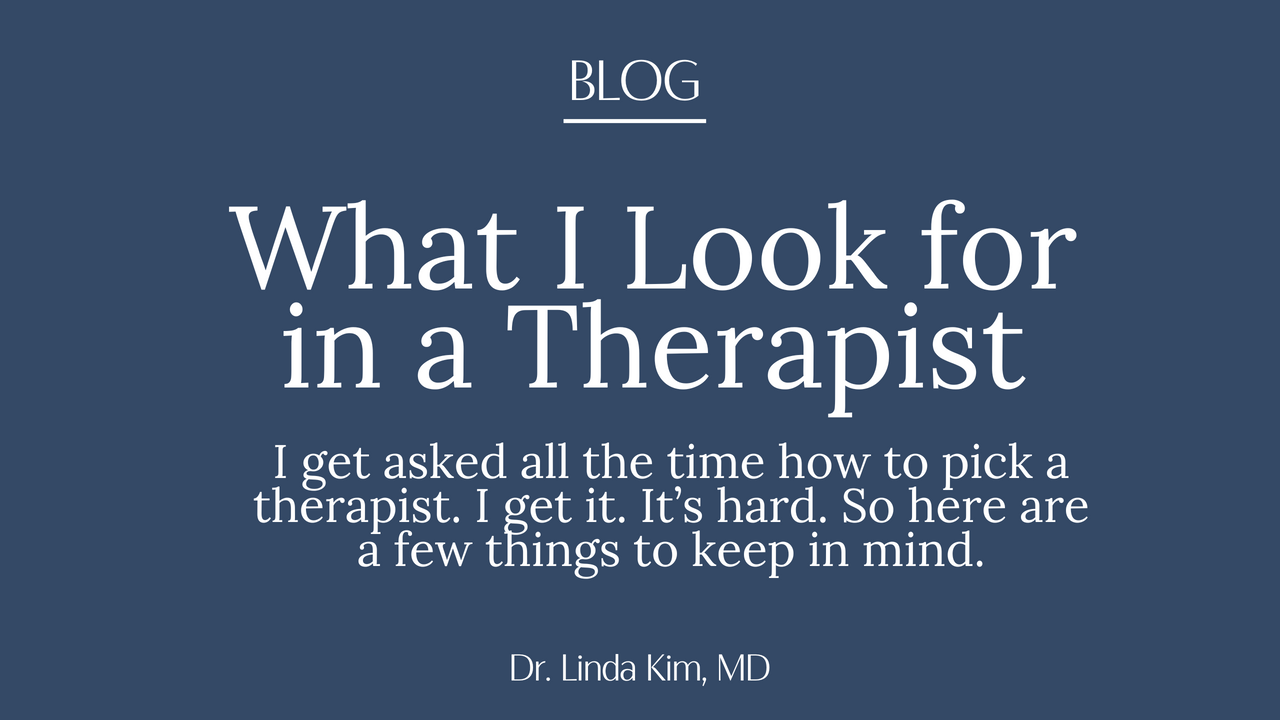What I Look for in a Therapist

There are many challenges of finding a therapist. I realize I’m skipping many steps (dealing with insurance, getting a list of providers or recommendations from trusted sources, getting calls back from providers, etc.). However once you are at the stage of choosing a therapist, a major challenge of choosing the right one still exists.
I get asked all the time how to pick a therapist. I get it. It’s hard. So here are a few things to keep in mind.
Looking for a therapist?
- Do you feel comfortable and safe? This one is a basic one, but so very important. Do you find that you are able to talk about everything you need to? Are you able to talk freely about your goals and your hopes and concerns, but also your fears and shame and remorse? Do you find yourself omitting details or brushing over things that you feel like you shouldn’t reveal? This can happen a lot in therapy (we are conditioned to talk about positive, bright things and less comfortable talking about sad or guilty feelings), but you should feel comfortable enough at some point to talk about reasons why you might be feeling this way.
- Does your therapist help you see things in different ways? Do you find yourself thinking, “Oh, I didn’t even see it that way.” Your therapist is there to help you be curious about different perspectives and narratives that may help you make decisions, pursue different passions, or make changes that you find helpful.
- Do the logistics work? Let’s be practical with this one. I recall feeling rushed leaving work early, running yellow lights, screaming at my kids to hurry up, and feeling frazzled when trying to get to my appointments. The time just didn’t work, and my therapist didn’t have other availability. So in order to minimize my own stress, I decided to make a change.
- Does your therapist take feedback? I invite my patients to check in with me and feel free to give feedback on what is working well for them, and express their opinion on things. There are studies that demonstrate that how connected you feel with your patient is more important than the particular type of therapy your therapist is offering. That means that you have to build a relationship based on trust, and sometimes that means bringing up topics that may be hard for you at first.
- Is your therapist helping you achieve your goals? In the end, your therapist is there to help you. Help you improve your mood, decrease your anxiety, develop yourself, acclimate to hard changes. When you look back, are you moving in the right direction? If you feel like you have made very little change, it’s time to bring that up and talk with your therapist about it. The conversation in it of itself will absolutely help you explore ways to improve your therapeutic relationship as well!
What are some things that you look for in a therapist?




